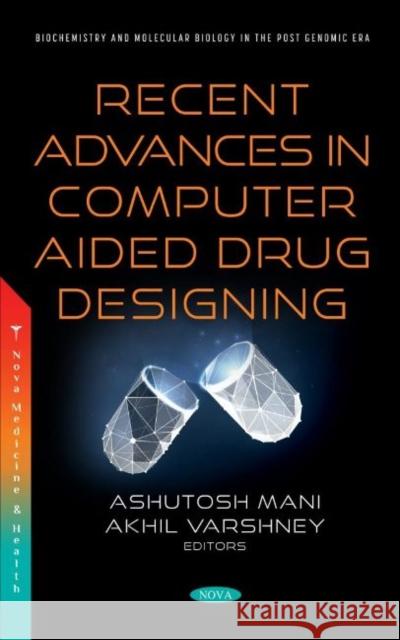Recent Advances in Computer Aided Drug Designing » książka
Recent Advances in Computer Aided Drug Designing
ISBN-13: 9781536197396
We are extremely happy to introduce our new book, Recent Advances in Computer Aided Drug Designing. While interacting with many researchers in the field of biotechnology and allied sciences, we felt that there was need for a book that could easily bridge the gap between in silico methods applied in structural bioinformatics for drug designing and wet lab workers. Today, when computational skills in biology and biomedical research are in high demand, this book presents updated content for methods and tools applicable in modern computer-aided drug designing. Researchers are pouring knowledge into databases that are publicly available and laboratories across the globe are accessing this information for analysis and further investigation. There is a battery of data scientists involved in development and maintenance of online databases. Alongside them, there is another class of programmers and scientists involved in development of software tools for analysis of this data. Modern tools based on machine learning are available to provide accuracy and efficiency with speedy analysis of biological and biomedical data. In many cases, analysis of readily available biological data helps to decide future directions for laboratory work. Indications obtained from such analytics save time and resources which could be very crucial in general. Publicly available protein three-dimensional structure and drug databank libraries have facilitated the drug discovery process. Millions of drugs can be screened in a few hours by using virtual screening tools. Molecular viewing tools can be used to visualize macromolecules and their interactions with drugs. Findings from such studies are being used to validate results directly in laboratories. Efforts have been made to cover all areas relevant for computer-aided drug designing to allow this book to serve as a standard reference book and meet the requirements of graduate students and researchers working in drug design and structural bioinformatics. Some chapters are dedicated to basic concepts in computer-aided drug discovery while other chapters present applications of the available tools in the field. Contents from exemplary method-based chapters are easy to follow and will help new researchers in applying contemporary tools for their studies. The book will also stimulate programmers and data scientists interested in developing tools for structural bioinformatics applications to develop new and improved versions of software. Chapters presenting the basic concepts of methods involved in drug design will help new learners in the field to meet the challenges of designing novel therapeutics by using computational tools. Cross-disciplinary research is in trend nowadays and such investigations involving experts of their respective fields are highly promising and fruitful. Drug discovery requires experts from health sciences and medical sciences, molecular biologists, bioinformaticians, biotechnologists, biochemists, statisticians, biophysicists and clinicians. For a complete piece of translated product such as a drug, inputs from specialist researchers are needed. Modern rational drug discovery approaches are truly inter-disciplinary fields which require a systems biology approach for successful ventures. This book covers all steps of drug design, from drug target identification to intermediate steps to successful clinical trials, making it truly essential for modern researchers in the drug discovery and structural bioinformatics fields.











